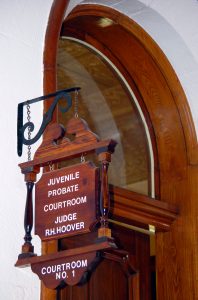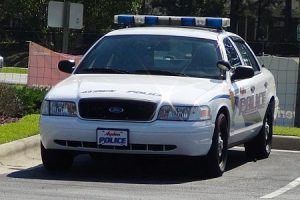 Earlier this week, I met with a client who was pulled over by the State Police for driving 38 miles an hour over the speed limit on the Tollway. The client did not realize that driving 38 miles an hour over the posted speed limit in Illinois is a crime. He did not realize that he could be charged with a Class A Misdemeanor for driving at such an excessive speed. He did not know that he was facing the possibility of being sentenced to one-year in County Jail and fined up to $2,500.
Earlier this week, I met with a client who was pulled over by the State Police for driving 38 miles an hour over the speed limit on the Tollway. The client did not realize that driving 38 miles an hour over the posted speed limit in Illinois is a crime. He did not realize that he could be charged with a Class A Misdemeanor for driving at such an excessive speed. He did not know that he was facing the possibility of being sentenced to one-year in County Jail and fined up to $2,500.
When the State Trooper spoke to my client, he smelled an odor of burnt cannabis and observed a bowl, which the client had used to smoke marijuana, in the center console of my client’s vehicle. The State Trooper pulled the client out of the vehicle and placed him under arrest. When the State Trooper asked my client if there was anything in the vehicle that he wanted the Trooper to be aware of, the client told him that he had a pair of brass knuckles in the center armrest of his vehicle. The State Trooper found the brass knuckles and charged my client with Unlawful Use of a Weapon (720 ILCS 5/24-1) because of the brass knuckles. My client told me that he’s had the brass knuckles since he was a teenager and had no idea that he could be charged with Unlawful Use of a Weapon by simply possessing a pair of brass knuckles.
When it comes to the possession of brass knuckles, Illinois has very strict laws and rules that make the mere possession of brass, or metal knuckles, a crime. Not only is it against the law to possess brass knuckles in Illinois, it is against the law to possess jewelry, or items that look similar to brass knuckles. Brass knuckles are considered a deadly weapon in Illinois, just like a knife or a gun. If you are caught with brass knuckles, you will be charged with Unlawful Use of a Weapon, a Class A Misdemeanor. If you are caught with a pair of brass knuckles, you could be facing up to a year in county jail and a fine up to $2,500. Illinois Law places brass knuckles in the same category as a gun or a knife. From experience, even though the criminal charges for the possession of brass knuckles is the same as the possession of a firearm, criminal defendants charged with possessing brass knuckles are generally not treated as harshly in Court as criminal defendants who are charged with a possession of a firearm. You are more likely to get Probation or Court Supervision for the possession of brass knuckles as opposed to the possession of a firearm. Of course, every case is different so you should consult with an experienced Unlawful Use of Weapon criminal defense attorney about your specific case.
 Chicago Criminal Lawyer Blog
Chicago Criminal Lawyer Blog


 A very common question I get from clients with criminal cases is whether they have to appear for every Court date. Earlier today I received a phone call from a prospective client who is facing a Possession of Stolen Motor Vehicle (PSMV) case in DuPage County. He informed me that he failed to appear for his last court date and the Judge issued a warrant for his arrest with a bond of $30,000. The prospective client asked if I could file a Motion in DuPage County to have the warrant vacated without him having to show up. He also wanted to know whether he would ever have to show up to court if he hired me. Apparently, the prospective client was recently hired for a new job and his employer is not allowing him to take any days off.
A very common question I get from clients with criminal cases is whether they have to appear for every Court date. Earlier today I received a phone call from a prospective client who is facing a Possession of Stolen Motor Vehicle (PSMV) case in DuPage County. He informed me that he failed to appear for his last court date and the Judge issued a warrant for his arrest with a bond of $30,000. The prospective client asked if I could file a Motion in DuPage County to have the warrant vacated without him having to show up. He also wanted to know whether he would ever have to show up to court if he hired me. Apparently, the prospective client was recently hired for a new job and his employer is not allowing him to take any days off. Early this morning I received a phone call from a prospective client who wanted to talk to me about a “speeding ticket” they received last night for going 30 miles per hour over the posted speeding ticket on a local highway. I receive such phone calls from prospective clients almost every day. Very few people calling me for cases like this really understand what they are facing. I have written about cases like this because I handle many cases involving Aggravated or Excessive speeding. These phone calls usually start off with the prospective client wanting to talk about a “speeding ticket” they recently received. Once I find out that the “speeding ticket” is for 26 miles per hour, or more, over the posted speed limit, I usually have to explain to the prospective clients that what they are facing is not a simple speeding ticket. If you are cited for going 26 miles an hour, or more, over the posted speed limit, what you are facing is an actual criminal charge of Aggravated or Excessive Speding. Going 26 miles or more, over the posted speed limit is an actual crime in Illinois that carries a potential jail sentence. Let me explain.
Early this morning I received a phone call from a prospective client who wanted to talk to me about a “speeding ticket” they received last night for going 30 miles per hour over the posted speeding ticket on a local highway. I receive such phone calls from prospective clients almost every day. Very few people calling me for cases like this really understand what they are facing. I have written about cases like this because I handle many cases involving Aggravated or Excessive speeding. These phone calls usually start off with the prospective client wanting to talk about a “speeding ticket” they recently received. Once I find out that the “speeding ticket” is for 26 miles per hour, or more, over the posted speed limit, I usually have to explain to the prospective clients that what they are facing is not a simple speeding ticket. If you are cited for going 26 miles an hour, or more, over the posted speed limit, what you are facing is an actual criminal charge of Aggravated or Excessive Speding. Going 26 miles or more, over the posted speed limit is an actual crime in Illinois that carries a potential jail sentence. Let me explain. Today we are going to talk about hearsay. The legal term, “hearsay,” is one of the most misunderstood legal terms in the law. Last weekend I had a client in my office that I was preparing to testify for a trial that was coming up. I asked the client a couple of questions and the client said that the Court would not allow me to ask that question because it was hearsay. I found myself explaining the term to the client and realize that most people do not really understand the legal meaning and implications of the term “hearsay.” So let me explain what hearsay is and how it could impact your criminal case.
Today we are going to talk about hearsay. The legal term, “hearsay,” is one of the most misunderstood legal terms in the law. Last weekend I had a client in my office that I was preparing to testify for a trial that was coming up. I asked the client a couple of questions and the client said that the Court would not allow me to ask that question because it was hearsay. I found myself explaining the term to the client and realize that most people do not really understand the legal meaning and implications of the term “hearsay.” So let me explain what hearsay is and how it could impact your criminal case. I frequently meet clients who are expecting to be arrested in the near future. This past weekend, I met with a client who was questioned by their employer about some money that was missing. The client admitted to me that they had stolen some checks that have been written to their employer. The client informed me that their employer told them that they had notified the police and the client came to my office asking what they should do when they are arrested. This is a pretty common scenario in my practice. I frequently meet with clients who know that they are in trouble and that the day is coming that they will be arrested and be charged with a crime. Here’s what I told this client, and other clients, who want to know what will happen.
I frequently meet clients who are expecting to be arrested in the near future. This past weekend, I met with a client who was questioned by their employer about some money that was missing. The client admitted to me that they had stolen some checks that have been written to their employer. The client informed me that their employer told them that they had notified the police and the client came to my office asking what they should do when they are arrested. This is a pretty common scenario in my practice. I frequently meet with clients who know that they are in trouble and that the day is coming that they will be arrested and be charged with a crime. Here’s what I told this client, and other clients, who want to know what will happen. The title to this article comes from one of the most common questions I get asked by clients who call me to discuss their case. When I ask them what their question is, I’m frequently asked whether the client should have a lawyer for their case.
The title to this article comes from one of the most common questions I get asked by clients who call me to discuss their case. When I ask them what their question is, I’m frequently asked whether the client should have a lawyer for their case. The Grand Jury plays a very important role in our criminal justice system. Few people understand what a Grand Jury is and why it plays such an important role in our criminal justice system. A big reason for this is that the entire process is clouded in such secrecy. Clients are surprised and scared to hear that their case is going to a Grand Jury or that they have been indicted by a Grand Jury. The term “Grand Jury” can be scary for a criminal defendant who doesn’t understand what a Grand Jury is. Let’s talk about what a Grand Jury is and what role the Grand Jury plays in our criminal justice system.
The Grand Jury plays a very important role in our criminal justice system. Few people understand what a Grand Jury is and why it plays such an important role in our criminal justice system. A big reason for this is that the entire process is clouded in such secrecy. Clients are surprised and scared to hear that their case is going to a Grand Jury or that they have been indicted by a Grand Jury. The term “Grand Jury” can be scary for a criminal defendant who doesn’t understand what a Grand Jury is. Let’s talk about what a Grand Jury is and what role the Grand Jury plays in our criminal justice system. The right to a jury trial is one of the fundamental constitutional principles that applies to all criminal cases. If you are accused of a crime that carries a punishment of incarceration for more than 6 months, you have a constitutional right to a trial by a jury. The Illinois Constitution also guarantees you the right to a jury trial in a criminal case. Let’s talk a little bit about what a jury trial is and what happens in a typical jury trial in Illinois.
The right to a jury trial is one of the fundamental constitutional principles that applies to all criminal cases. If you are accused of a crime that carries a punishment of incarceration for more than 6 months, you have a constitutional right to a trial by a jury. The Illinois Constitution also guarantees you the right to a jury trial in a criminal case. Let’s talk a little bit about what a jury trial is and what happens in a typical jury trial in Illinois. In general, there are limits to the amount of time that state prosecutors have to bring criminal charges before they are barred by the Statute of Limitations from filing any criminal charges. If the state files criminal charges beyond the time limit, or the Statute of Limitations, the person charged with the crime can appear in court and get the criminal charges dismissed.
In general, there are limits to the amount of time that state prosecutors have to bring criminal charges before they are barred by the Statute of Limitations from filing any criminal charges. If the state files criminal charges beyond the time limit, or the Statute of Limitations, the person charged with the crime can appear in court and get the criminal charges dismissed. If you are charged with a felony criminal offense in Illinois, you need to know what you are being charged with and what class felony that criminal charge is classified as. Generally, felonies in Illinois are categorized into one of the four classes of felonies in Illinois. Depending on which class your felony is classified as being, the potential penalty will will vary depend on what class felony your crime falls into. Murder is not considered to be part of the four classes of felonies in Illinois. Murder is considered its own special class.
If you are charged with a felony criminal offense in Illinois, you need to know what you are being charged with and what class felony that criminal charge is classified as. Generally, felonies in Illinois are categorized into one of the four classes of felonies in Illinois. Depending on which class your felony is classified as being, the potential penalty will will vary depend on what class felony your crime falls into. Murder is not considered to be part of the four classes of felonies in Illinois. Murder is considered its own special class.